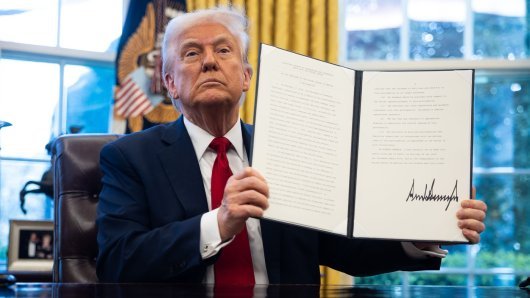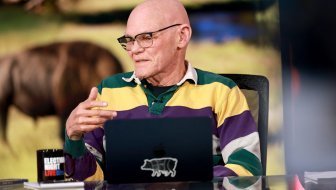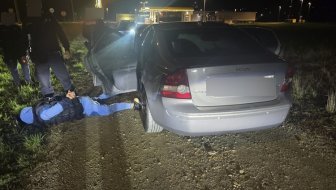The evidence presented during the trial proves beyond doubt that Serbian Radical Party leader Vojislav Seselj participated in and instigated the persecution and forcible relocation of Croats from the village of Hrtkovci in the Serbian province of Vojvodina, prosecutor Lisa Biersay said in her closing arguments before the International Criminal Tribunal for the former Yugoslavia (ICTY) in The Hague on Wednesday.
Prosecutor Lisa Biersay said that the accused had used hate speech to incite persecutions.
She recalled his party's rally in the predominantly Croat village of Hrtkovci on 6 May 1992, when Seselj said that unless the Croats left the village on their own, buses would be arranged to take them to the border with Croatia.
In his address at the rally Seselj said that there was no place any more for Croats in Hrtkovci, which constitutes a crime of spreading ethnic hatred with the aim of intimidating the local Croats and causing tensions, according to her closing argument.
At the rally Seselj, and his followers intentionally created an atmosphere of fear, preparing a nationalistic feast with armed Chetniks and Serb refugees from Croatia attending. The latter were incited to give the Croats in Hrtkovci the addresses of abandoned Serb-owned houses in Croatia.
Also, a list of "disloyal Croats" was read out, and the masses frantically applauded Seselj's speech and chanted "Ustashas, get out!" and "This is Serbia!".
After the rally, Croats began to leave the village in large numbers and the village was renamed Srbislavci.
The accused intended and managed to spread fear among the Croats, the prosecutor said.
She described as insulting Seselj's claim that only eight Croats had been forcibly relocated from Hrtkovci.
The nine-count indictment alleges that Seselj participated with other participants, led by former Yugoslav President Slobodan Milosevic, in a joint criminal enterprise the purpose of which was the permanent forcible removal of the Croats, the Bosnian Muslims and other non-Serb populations from parts of Croatia, Bosnia and Herzegovina and Vojvodina in order to make these areas part of a Greater Serbia. The forcible relocation was being conducted through the commission of crimes, including the killing, deportation and mistreatment of Croats and Muslims and the plunder and destruction of their property.
Seselj, 57, is charged with crimes against humanity and violations of laws and customs of war in Croatia, Bosnia and Herzegovina and against Croats in Vojvodina from 1991 to 1993.
During the presentation of evidence, the prosecution showed footage of Seselj giving inflammatory speeches, or him, dressed in military uniforms or in civilian clothes, visiting Serb paramilitary and volunteer troops whom he incited to plunder Croat- and Muslim-populated areas in Croatia and Bosnia and Herzegovina and to commit other war crimes.
The prosecution called to the witness stand 72 victims, including survivors of the Ovcara and Vocin atrocities in which Seselj's volunteers had been involved, as well as Croats from Hrtkovci in Vojvodina, who started leaving their home village in fear and under threat, after his speech in parliament in Belgrade in April 1992, in which Seselj advocated the expulsion of Croats from Vojvodina, and the rally in Hrtkovci the following May, when the list of the Croats and the Hungarians who had to leave was read out.
Out of 1,000 Croats, 700 left the village in Vojvodina after the said rally.
During their closing arguments, the prosecutors in the Seselj case recommended that Seselj be found guilty and sentenced to 28 years in prison for war crimes against non-Serbs in Croatia, Bosnia and Vojvodina.
He is responsible for the suffering of tens of thousands of victims exposed to forcible relocation from their homes, to murders, detention, torture and rapes, the lead prosecutor in the case, Mathias Marcussen, said later on Wednesday.
Marcussen said that Seselj's incendiary speeches had led to the destruction of villages and towns of non-Croats.
"The prosecution requests a sentence of 28 years," he said.
The lead prosecutor said that the duration of Seselj's imprisonment should be 28 years, excluding previous prison terms he was given in separate proceedings for the disclosure of the identity of protected witnesses. He was sentenced to 15 months in one of those cases. In the second case he was given 18 months pending appeal, and the third trial of Seselj for revealing the identity of protected witnesses is under way.
The idea of a Greater Serbia was his raison d'etre, the prosecutor said, adding that Seselj had closely cooperated with other members of the joint criminal enterprise in order to establish a Greater Serbia.
Seselj is also held responsible for having mobilised thousands of his zealots who voluntarily participated in the military aggression against Croatia and Bosnia where they committed crimes.
The activities of the accused dramatically changed the ethnic make-up of the villages and towns he targeted, leaving 905 victims killed and property plundered behind him, the prosecutor said.
The accused is due to present his closing arguments next week.



































